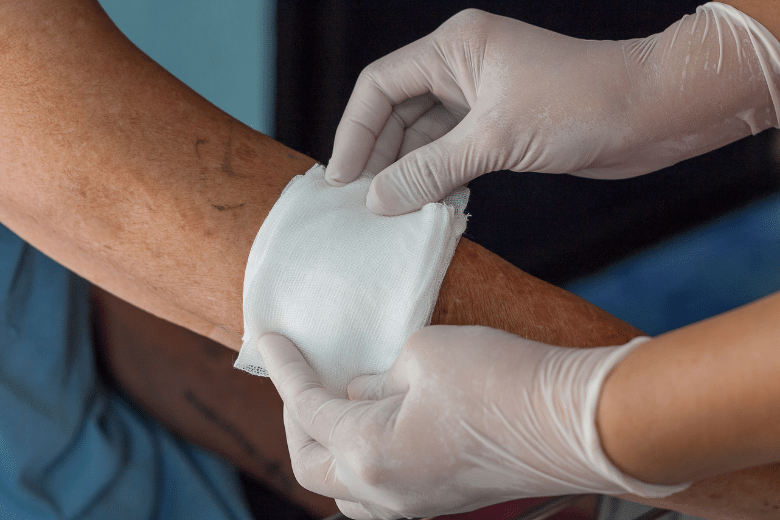
07 Oct The Benefits of Specialized Wound Care Services
Chronic or non-healing wounds can present unique challenges, affecting daily life and overall well-being. When a wound fails to progress through the normal stages of healing in a timely manner, specialized care may be suggested. This type of care can be prescribed at practices like a vein clinic. It provides a structured framework to address complex wounds and support the body’s natural healing processes.
What Is Wound Care?
Specialized wound care is a coordinated, evidence-informed approach to managing complex wounds. It is delivered by a team of trained clinicians who have specific education in wound management. This discipline identifies the underlying factors that may impede healing and develops a plan to address them. The goal is to create an optimal environment for the body to repair tissue.
Clinicians in this field manage a variety of wound types. Arterial ulcers are typically related to poor circulation. Venous ulcers are associated with problems in the veins. Diabetic foot ulcers are a frequent complication in individuals with diabetes and usually develop on the feet.
The health of the vascular system, which includes arteries and veins, can directly influence the body’s ability to heal. Proper blood flow is needed to deliver oxygen and nutrients to a wound site, which are building blocks for new tissue. For this reason, wound care may involve an evaluation of circulatory health.
Who Is It For?
Specialized wound care services are designed for individuals whose wounds have not healed within the expected timeframe or who have conditions that increase their risk of healing complications. While anyone with a persistent wound may benefit, certain patient profiles are frequently seen in wound care settings. These individuals may include:
- People with diabetes are susceptible to foot ulcers due to nerve damage and circulation issues.
- Those with peripheral arterial disease (PAD), a condition that reduces blood flow to the limbs.
- Patients with chronic venous insufficiency, where the veins in the legs have difficulty sending blood back to the heart.
- Those with a history of recurrent or non-healing ulcers.
Other risk factors, such as reduced circulation, can also make a person a candidate for specialized wound care. The service aims to provide a tailored plan for anyone facing challenges with the wound healing process.
What Does It Involve?
A specialized wound care program at a vein clinic typically begins with a thorough evaluation to understand the wound and the patient’s overall health. This process is collaborative and involves multiple components designed to support healing. The plan is customized to the individual’s specific needs. Standard elements of a wound care plan may include:
- Cleansing and Moisture Balance: The wound is gently cleansed, and dressings may be selected to maintain a proper moisture balance.
- Debridement: When appropriate, non-viable tissue is removed from the wound bed to encourage the formation of healthy tissue.
- Patient Education: Patients receive guidance on self-care to actively participate in their own healing.
- Follow-Up Scheduling: Regular appointments are scheduled to monitor progress and adjust the treatment plan as needed.
Seek Care at a Vein Clinic
For individuals with non-healing wounds on the lower extremities, particularly those linked to circulation issues, a vein clinic can be a valuable resource. These clinics can have specialized wound care programs staffed by clinicians who understand the connection between vascular health and wound healing. They can provide a thorough assessment and a coordinated care plan tailored to your needs.

No Comments